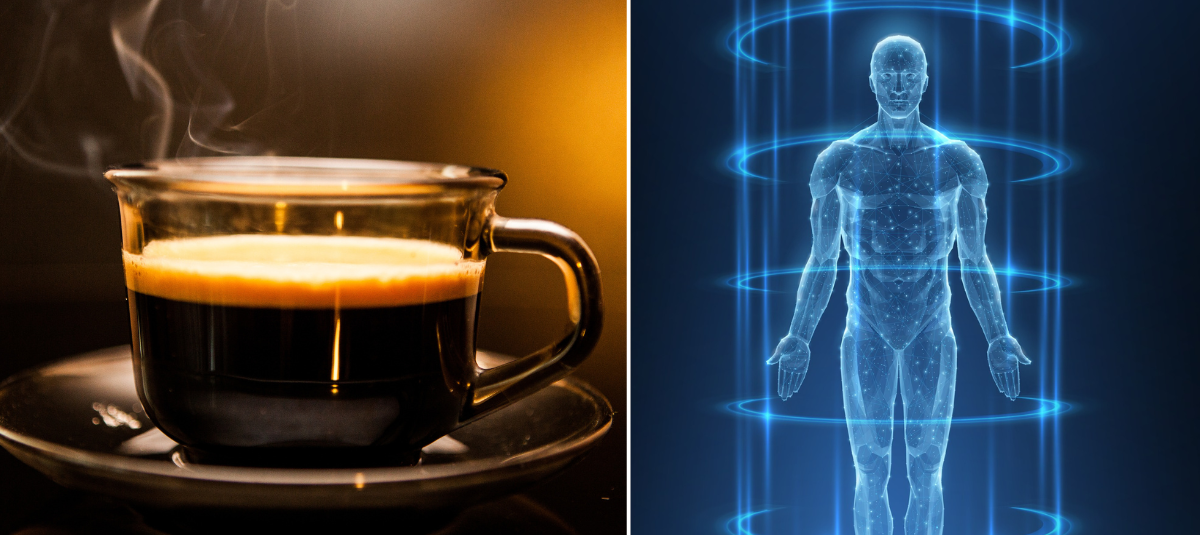Sleep psychologist explains caffeine's adverse effects on sleep: 'The brain wouldn't relax or recover properly.'

This is what you should know. Photo: Social media/iStock
Caffeine is one of the most widely consumed psychoactive substances worldwide, present not only in coffee but also in energy drinks, tea, chocolate, and some soft drinks.
Despite its popularity, a recent study conducted by a group of researchers at the University of Montreal (UdeM) has revealed how caffeine not only affects sleep by inducing insomnia, but also interferes with brain recovery processes during the night.
READ ALSO

The research, published in Nature Communications Biology, was led by Philipp Thölke and Karim Jerbi, in collaboration with Julie Carrier, a sleep psychologist at the University of Madrid. In this study, artificial intelligence and electroencephalography (EEG) were used to observe the impact of caffeine on the brain during sleep.
The research demonstrated for the first time that caffeine increases the complexity of brain signals and enhances brain criticality during rest.
Julie Carrier, sleep psychologist at the University of Madrid. Photo: Social media/iStock
This criticality phase, according to Jerbi, is a state of balance between order and chaos in the brain, allowing it to function optimally: "It's like an orchestra: too much silence and nothing happens, too much chaos and cacophony occurs. Criticality is the midpoint where brain activity is organized and flexible. In this state, the brain functions optimally: it can process information efficiently, adapt quickly, learn, and make decisions with agility."
For his part, Carrier noted: “Caffeine stimulates the brain and puts it into a state of criticality, where it is more awake, alert, and reactive. While this is helpful during the day for concentration, this state could interfere with nighttime rest : the brain wouldn't properly relax and recover.”
This finding is worrying, given that sleep quality directly affects memory consolidation and cognitive recovery, functions essential to physical and mental well-being.
The study also revealed that caffeine significantly alters the brain's electrical rhythms during sleep, especially during non-rapid eye movement (NREM) sleep. This phase is key to cognitive recovery.
According to the results, caffeine not only attenuated the slow oscillations associated with deep sleep, such as delta waves, but also increased beta wave activity, typically present during wakefulness and mental activity.
READ ALSO

Jerbi added: "These changes show that the brain, even while asleep, remains in a more active and less restorative state due to caffeine. The alteration in the brain's rhythmic patterns could be key to understanding how caffeine affects nighttime brain recovery, which could influence memory processing."
Caffeine Photo: iStock
The study also found that caffeine's effects on brain dynamics were more pronounced in young adults, ages 20 to 27, compared to middle-aged people.
This difference, according to the researchers, is due to a higher density of adenosine receptors in the brains of younger people. Adenosine, a molecule that accumulates in the brain throughout the day, generates feelings of tiredness and facilitates sleep.
This is what you should know. Photo: iStock
Carrier explained: “Adenosine receptors naturally decline with age, reducing caffeine’s ability to block them and enhance brain complexity, which may partly explain the weaker effect of caffeine observed in middle-aged participants.”
READ ALSO

Given the widespread use of caffeine, especially among those seeking to combat fatigue, researchers emphasize the importance of understanding its effects on brain activity in both young and older adults.
The results suggest that excessive caffeine consumption could have repercussions beyond insomnia , affecting the quality of sleep and cognitive recovery of those who rely on this substance to stay alert.
El Comercio (Peru) / GDA.
*This content was rewritten with the assistance of artificial intelligence, based on information from El Comercio (GDA), and reviewed by the journalist.
Follow all the Culture news on Facebook and X , or in our weekly newsletter .
eltiempo


